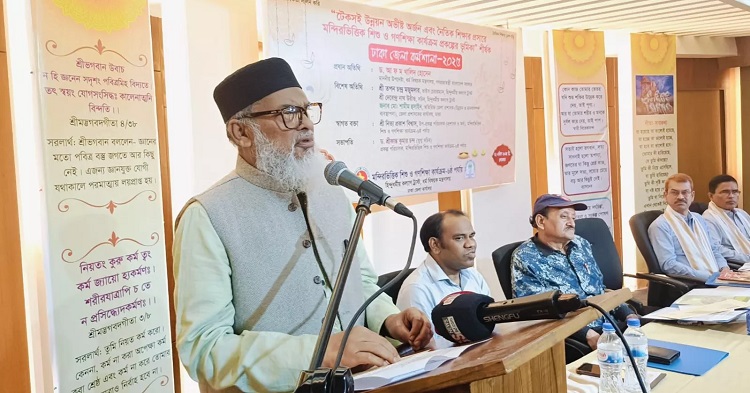Bangladesh stands as a model of communal harmony: Religious Affairs Adviser


Religious Affairs Adviser Dr AFM Khalid Hossain on Monday said Bangladesh is a model of communal harmony, emphasising the unique environment of interfaith tolerance that sets it apart from its neighbouring countries.
Dr Khalid made the statement while inaugurating the Dhaka District Workshop 2025 on the Role of Temple-Based Child and Mass Education Programme in Achieving Sustainable Development Goals and Promoting Moral Education’ at Bishwo Shahitto Kendro in the capital.
“The harmony among different religious communities in Bangladesh is unmatched in the region,” he said, while acknowledging that challenges to communal peace persist.
Dr Khalid referred to instances of violence against religious sites, citing attacks on temples and shrines, particularly following the July revolution.
He stressed that these incidents were more politically motivated than religious in nature and urged the need to combat international propaganda surrounding such events.
Despite these challenges, Dr Khalid assured that all citizens in Bangladesh enjoy equal rights, regardless of their religious or ethnic backgrounds.
He pointed to the significant contributions of people from all faiths in the nation’s 54-year history, underscoring their role in national achievements.
Dr Khalid also called for the strengthening of moral education within society, advocating for the spread of religious teachings that promote ethics and values.
He urged stakeholders to carry out humanitarian work through temple-based initiatives.
On the topic of teacher compensation under the temple-based education programmes, Dr Khalid promised parity with the mosque-based education project, stating that any increase in honorariums for mosque educators would be extended to those involved in temple-based education as well.
Emphasising the historical significance of religious institutions in education, he highlighted that places of worship such as mosques, temples, churches, and pagodas have long been centers of learning, a tradition that continues to this day.
